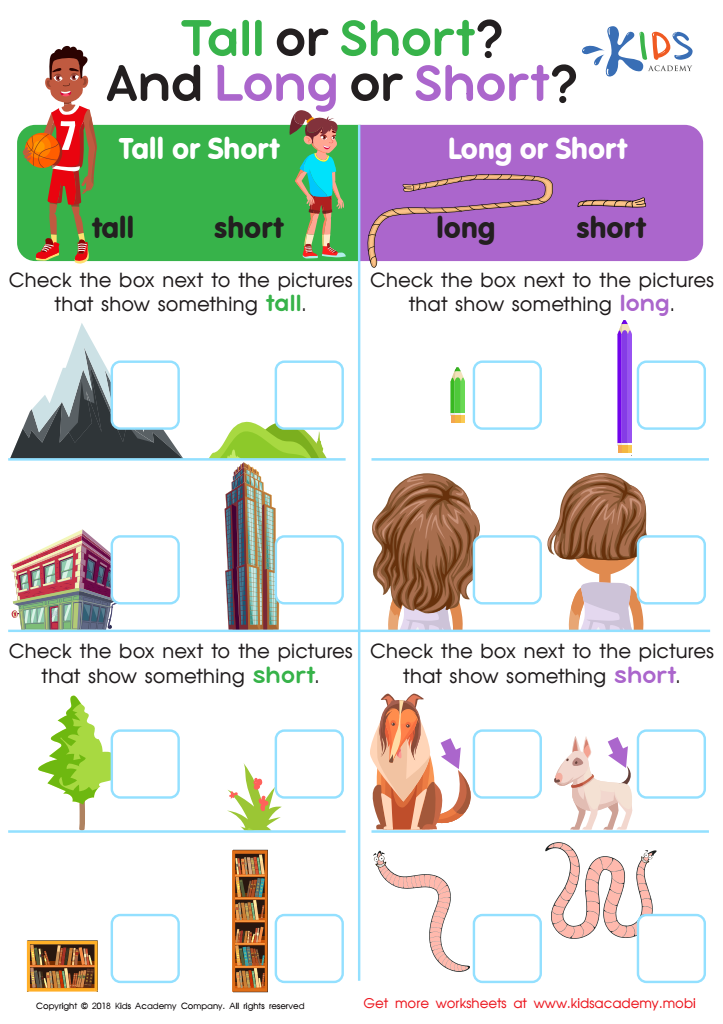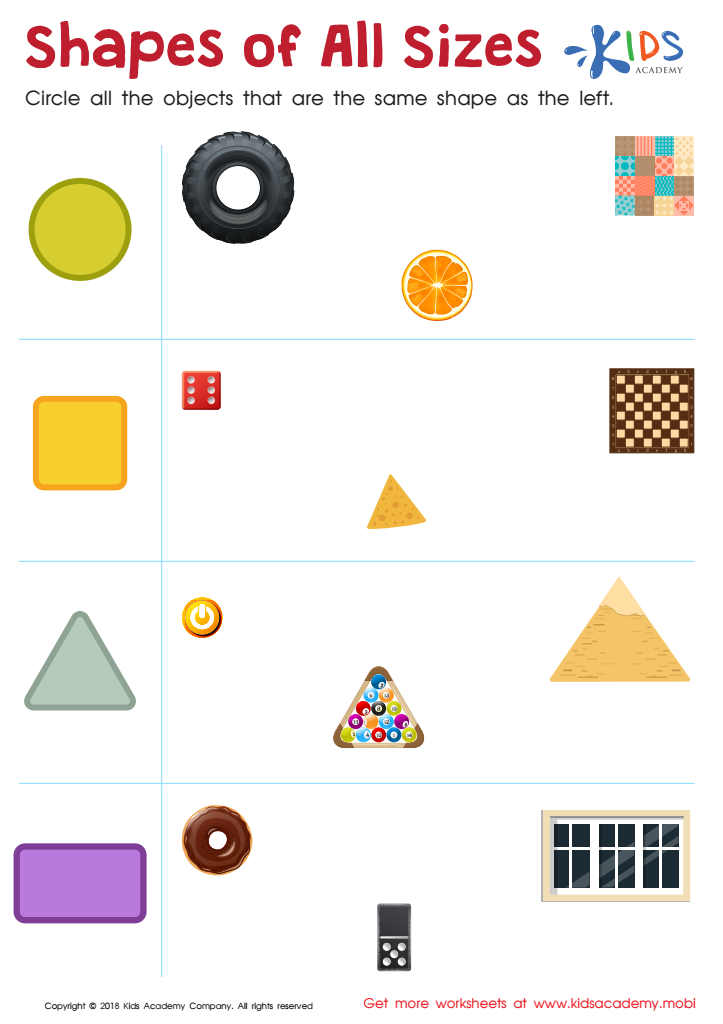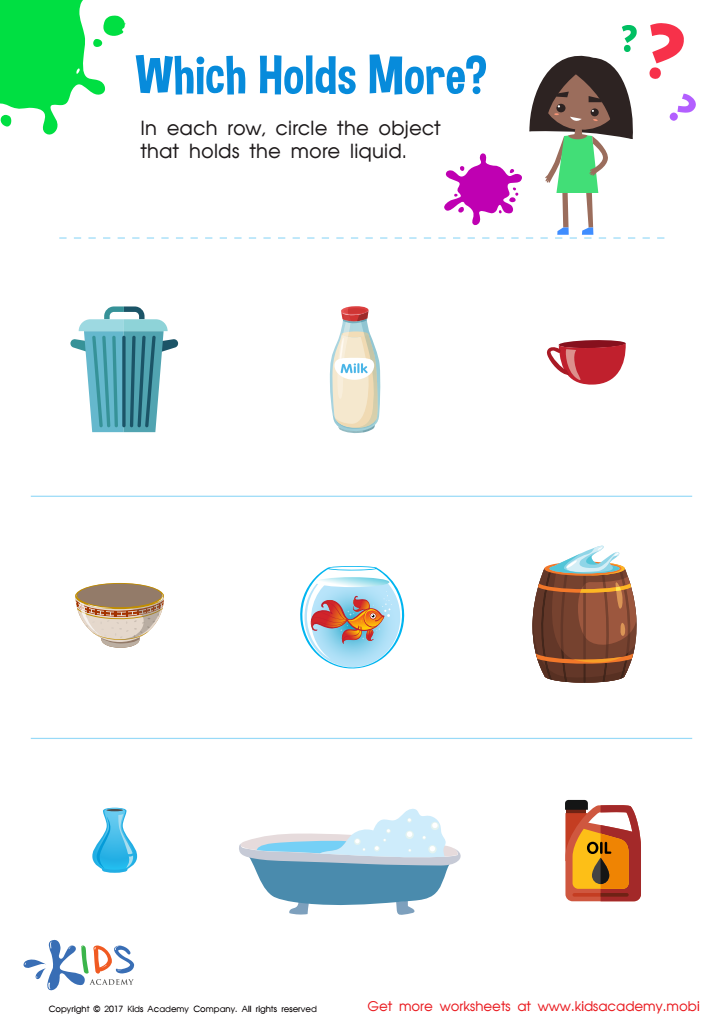Basic measurement concepts Normal Math Worksheets for Ages 4-5
3 filtered results
-
From - To
Discover a vibrant collection of Basic Measurement Concepts worksheets designed for children ages 4-5, perfect for introducing essential math skills! These engaging worksheets cover fundamentals such as length, weight, and volume through fun activities that spark curiosity and learning. Tailored to accommodate early learners, each worksheet encourages hands-on exploration with vivid visuals and easy-to-follow instructions. Parents and educators can seamlessly integrate these resources into their teaching, fostering a strong mathematical foundation while keeping kids entertained. Download these printable worksheets today to help young learners master measurement concepts in an enjoyable and effective way! Start your child's math journey now!


Tall or Short and Long or Short? Worksheet


Shapes of All Sizes Worksheet


Which Holds More: Capacity Worksheet
Parents and teachers should prioritize teaching basic measurement concepts to children ages 4-5 because these skills establish a foundation for future mathematical understanding and everyday life. At this age, children are naturally curious and eager to explore their environment. Introducing measurement concepts helps them make sense of the world around them, enhancing their observational skills and critical thinking.
Basic measurement introduces children to vocabulary related to length, weight, capacity, and time, increasing their language development. By engaging in hands-on activities—like comparing the height of building blocks or measuring ingredients for a simple recipe—they develop fine motor skills and promote an understanding of mathematical reasoning.
Moreover, learning measurement fosters confidence and promotes problem-solving abilities. Children begin to grasp concepts like “more than,” “less than,” and “equal to,” which are crucial for later math skills such as addition and subtraction. Engaging in measurement activities can also strengthen parent-child and teacher-student bonds through collaborative learning experiences.
Ultimately, embedding measurement concepts in early education lays the groundwork for a child’s academic success while nurturing their innate curiosity and creativity in the process. By investing in these foundational skills, adults are preparing children for a more comprehensive understanding of math later in life.

 Assign to My Students
Assign to My Students



.jpg)












